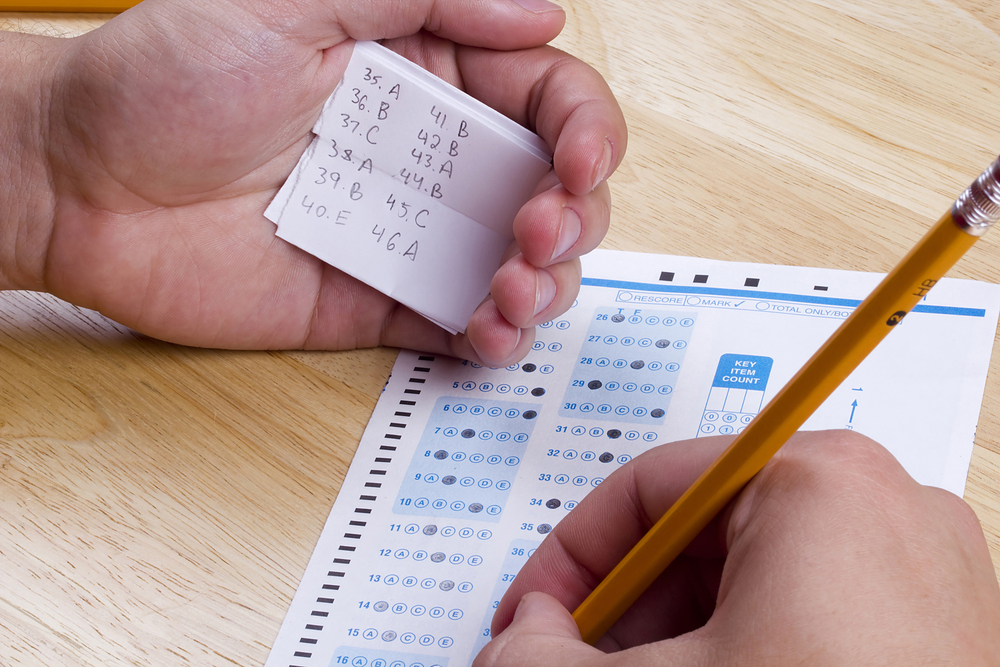
In today’s educational landscape, maintaining academic integrity is of paramount importance. As a tutor academy in Karachi, we understand the challenges associated with preventing cheating during tests. Cheating not only undermines the learning process but also erodes the credibility of educational institutions. Let’s explore effective strategies to curb cheating and promote a culture of honesty.
Introduction
Academic integrity serves as the cornerstone of a meaningful education. Sadly, cheating has become a pervasive issue, with students resorting to dishonest practices in pursuit of better grades. This phenomenon is a significant concern for both educators and parents.
Understanding Cheating
Cheating takes various forms, from copying answers to plagiarism. Understanding the reasons behind cheating is crucial. Students may cheat due to academic pressure, a fear of failure, or a lack of interest in the subject matter. Addressing these underlying issues is essential to tackle cheating effectively.
Impact of Cheating
The consequences of cheating are far-reaching. Beyond immediate disciplinary actions, students miss out on valuable learning experiences. Cheating undermines their personal and intellectual growth, leading to a shaky foundation for future endeavors.
Creating a Positive Environment
Fostering a culture of honesty is a collective effort. Teachers and parents must emphasize the importance of integrity. By nurturing an environment where mistakes are seen as opportunities for growth rather than sources of shame, we can reduce the temptation to cheat.
Effective Test Design
Designing engaging assessments is an integral part of preventing cheating. By creating diverse and thought-provoking test questions, educators can discourage rote memorization and encourage a genuine understanding of the subject matter. Additionally, varying the format and content of tests reduces predictability.
Promoting Learning
Shifting the focus from grades to comprehension can deter cheating. When students grasp the value of understanding concepts over memorization, cheating becomes counterproductive. Encouraging critical thinking and real-world applications of knowledge makes cheating irrelevant.
Time Management
Teaching effective study habits is vital. Breaking study sessions into manageable chunks minimizes last-minute cramming, a breeding ground for cheating. Time management skills not only enhance academic performance but also reduce the urge to resort to dishonest shortcuts.
Providing Resources
Ensuring students have access to study materials is essential. Lack of resources can push students towards unethical practices. Teachers should make necessary materials available and even consider offering extra help through tutoring for struggling students.
Personalized Approach
Recognizing that each student learns differently is pivotal. Tailoring assessments and teaching methods to individual learning styles acknowledges diversity and reduces the likelihood of cheating. When students feel their unique needs are addressed, they are more likely to engage genuinely.
Digital Solutions
Technology can aid in preventing cheating. Plagiarism detection tools help educators identify copied content, discouraging students from taking the easy way out. Online platforms also offer opportunities for skill enhancement, making cheating unnecessary.
Open Communication
Encouraging open discussions about cheating creates awareness. Students should feel comfortable discussing their academic challenges and pressures. By addressing these issues openly, we can help students find healthier ways to cope.
Faculty Role
Educators play a vital role in shaping student behavior. Leading by example and demonstrating integrity in their actions establish a strong ethical foundation. Constructive feedback that focuses on improvement rather than punishment also curbs cheating tendencies.
Building Integrity
Recognizing and celebrating honest efforts reinforces positive behavior. When students see that their hard work is acknowledged and valued, they are less likely to jeopardize their integrity. Instilling a sense of pride in one’s achievements can be a powerful deterrent.
Conclusion
Preventing cheating requires a multi-faceted approach. By redesigning assessments, promoting genuine learning, and fostering open communication, we can create an environment where cheating holds no appeal. As a tutor academy in Karachi, we are committed to equipping students with the tools they need to succeed ethically.
FAQs
- Why do students cheat during tests? Students may cheat due to pressure to perform, lack of preparation, or a desire for higher grades without understanding.
- How can teachers identify cheating? Teachers can spot cheating through suspicious behavior, inconsistencies in work, and plagiarism detection tools.
- What role do parents play in preventing cheating? Parents can reinforce values of honesty, provide a conducive study environment, and encourage open communication.
- Can technology help prevent cheating? Yes, technology offers plagiarism detection tools and online learning platforms to enhance skills and reduce cheating temptations.
- Is preventing cheating an ongoing effort? Yes, maintaining academic integrity requires continuous collaboration between educators, parents, and students to uphold ethical standards.